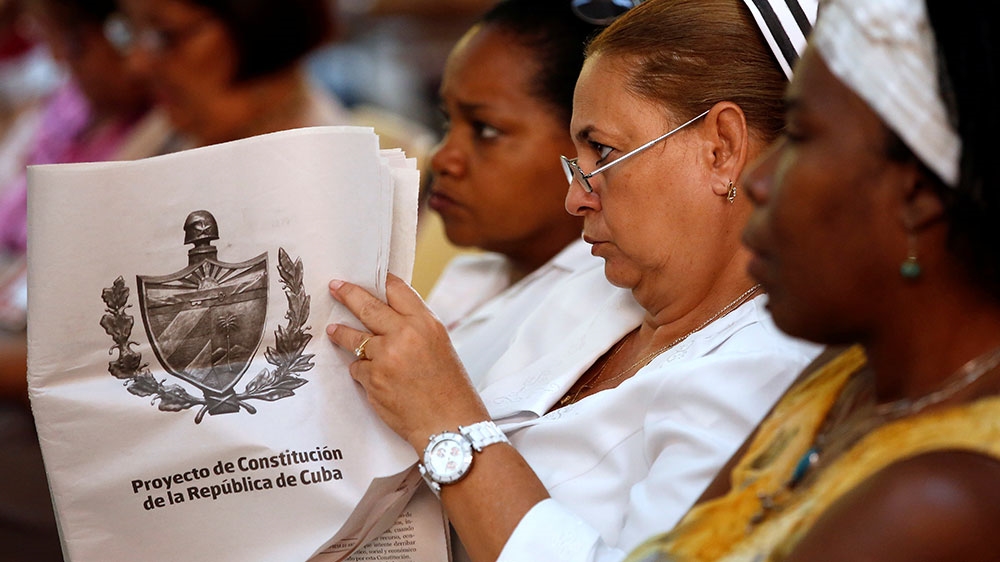
Nearly 87 percent of Cuban voters approved a new constitution that preserves the island’s single-party socialist system and centrally planned economy while updating some financial, electoral and criminal laws, authorities said Monday.
The margin of victory was relatively low for a country where opposition parties and campaigns are illegal and official proposals routinely receive higher than 90 percent approval.
Cuba’s National Electoral Commission said 7,848,343 people voted Sunday on the new charter, which was widely promoted as a vehicle for continuity in one of the world’s last communist nations.
The commission said 6,816,169 people voted in favour of the new constitution. Some 300,000 votes were counted as invalid because they were blank or defaced, while 706,400 people voted against the new constitution.
The current constitution was approved by 97.7 percent of voters in a referendum in 1976, the peak of a system dedicated to displays of national unity.
Both President Miguel Diaz-Canel and his predecessor, Raul Castro, received 94 percent approval in their last elections.
In recent weeks, Diaz-Canel’s government waged a non-stop campaign promoting a “yes” vote and tarring those voting “no” as counterrevolutionaries and enemies of the state. Aside from a few independent websites, all Cuban media is state-run and the airwaves were filled with messages urging people to vote “yes” for the sake of continuity on the island.
‘Points us toward the future’
The new constitution recognises private and cooperative businesses alongside state ones, creates the posts of prime minister and provincial governor, and introduces the presumption of innocence and habeas corpus to the justice system. It also sets term limits for the president.
“This constitution establishes the best for the country, for the future of the Cuban people,” said Miguel Alvarez, a 57-year-old technician for the Havana water utility. “It eliminates past mistakes and points us toward the future.”
But Carlos Saladrigas, a Cuban-American businessman and head of the Cuban Study Group, which advocates enagement with Cuba, said the consitution is “another big missed opportunity”.
“The few important economic changes made are not sufficient to create economic growth and attract foreign investment in the needed quantities,” he told Reuters news agency.
 |
| A Cuban nurse holds the draft proposal of changes to the constitution during the beginning of a public political discussion to revamp a Cold War-era constitution [Tomas Bravo/Reuters] |
In recent days, the government’s messages were mixed with words of support for Venezuelan President Nicolas Maduro as tensions rise between Cuba’s main ally and the Trump administration, along with Latin American allies who support the Venezuelan opposition and its attempt to force aid into the country.
The “no” campaign was amplified by the rapid spread of mobile internet across Cuba in recent months. Some 2 million Cubans on the island have contracted mobile data service since it was offered for the first time in December.
The largest block of “no” votes was expected to come from the growing ranks of evangelical Christians in Cuba, who object to language that eliminates a requirement for marriage to be only between a man and woman, paving the way for a future legalisation of gay marriage.












